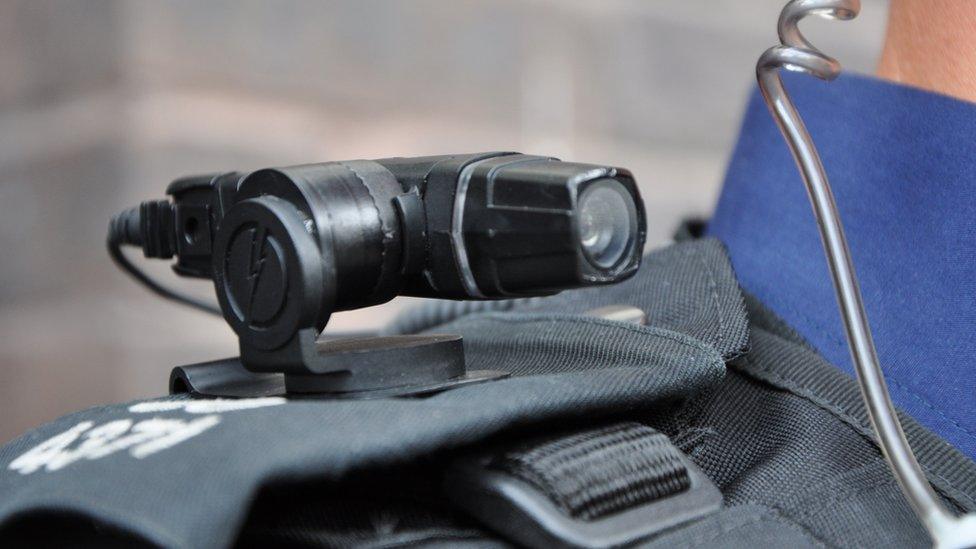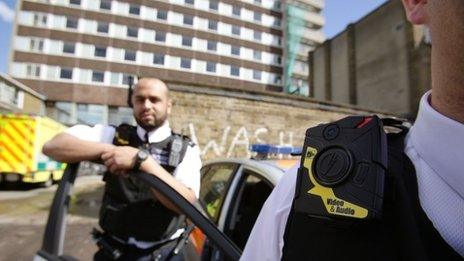Body-worn cameras 'cut allegations' against police
- Published

Body worn video cameras can be mounted on officers' shoulders
Most uniformed Met Police officers are to be equipped with body-worn video cameras after a trial found they cut allegations against the force by 33%.
The College of Policing study said the devices gave police more confidence.
Taser law enforcement technology firm has won a three-year contract to provide 22,000 cameras by next spring.
The police watchdog, the IPCC, said the position of the body-worn video cameras on firearms officers made the footage they recorded "unfit for purpose."
The roll-out follows an 11-month trial in 10 London boroughs, which the Met said was the largest trial of its kind in the world.
'More accountable'
The report, external, jointly commissioned by the Mayor's Office for Policing and Crime and the College of Policing, concluded that wearing cameras had no impact on the number of stop and searches, but made arrests slightly less likely.
"There was no evidence that BWVs (body-worn video cameras) changed the way police officers dealt with victims or suspects," it said.
Officers reported it could be useful in domestic violence incidents where physical evidence was hard to collect.
Ninety-two percent of the people questioned in a Public Attitude Survey, carried out by a research group for the Met, thought BWVs would make police more accountable for their actions.
The devices have a 30 second video-only pre-buffer, so that when an officer presses the record button, the camera captures the previous 30 seconds of visual information.
Data is deleted after 31 days, unless it is marked as evidence.
'Footage obscured'
The College of Policing report said officers complained about the bulkiness of the equipment, poor battery life, "and the camera positioning on their vest, which was particularly awkward when driving".
The Independent Police Complaints Commission (IPCC) analysed footage from the non-fatal shooting of Nathaniel Brophy, 34, in Clapham on 21 August.
It said the positioning of the cameras on firearms officers' chests obscured and impacted the quality of the footage, making them 'unfit for purpose, external'.
The Met said the cameras "are capable of a variety of mounting options and these are being tested as part of this pilot."
- Published19 October 2015

- Published3 June 2015
